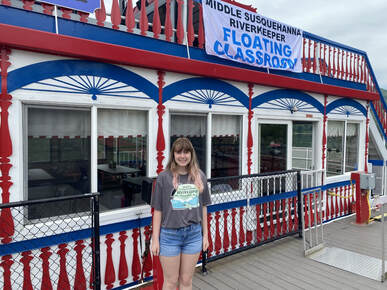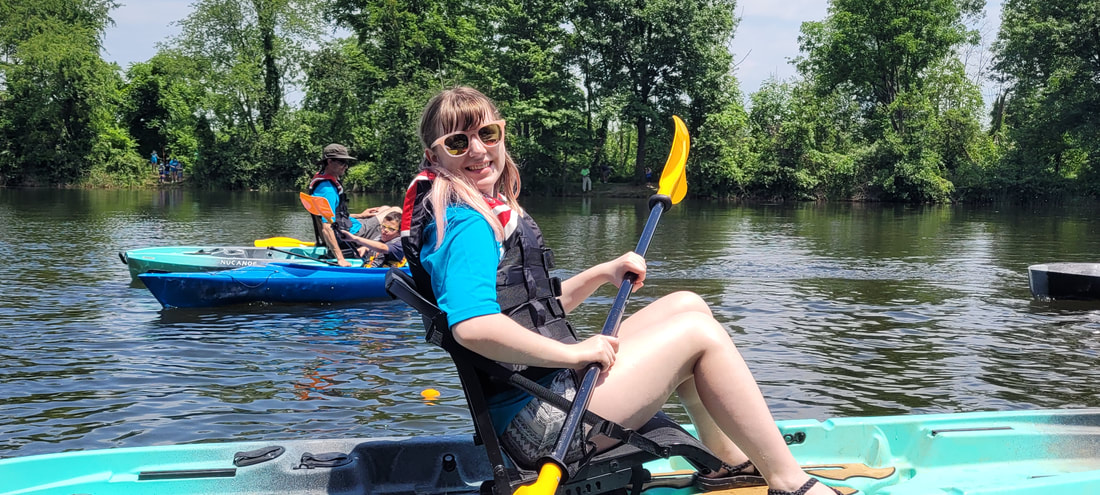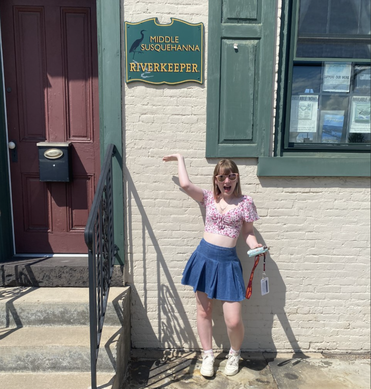|
Riverkeeper's note: This column was provided by association intern Peyton Curley. You can contact her at [email protected] As a high school student, I worried about not knowing what I wanted to do in the future. All my other classmates knew exactly what they wanted to major in, but nothing really stuck out to me. That is, until I took an environmental science class. I knew after taking this class that this is what I wanted to do. I loved learning about the earth and how everything was related to something else. I became passionate about advocating for the earth, because if humans continue down the path we’re currently on, the beautiful interconnectedness of the biosphere will be destroyed.  I really felt like I wanted to do something about this, to make sure that I am able to make a difference. But, environmental science is so broad, it's hard to focus on everything at once! I was then faced with the problem of choosing what I wanted to do with my environmental science degree once I got it. I took concentration specific classes at Susquehanna University such as geology, meteorology, water resources, and ecology. I enjoyed each of these classes, but none of them really stuck out to me as something I wanted to focus on. I decided finding an environmentally based internship would help me, because then I would be out in the real world instead of just learning about it in a classroom. Through Susquehanna’s Freshwater Research Institute, I applied for this internship with the Middle Susquehanna Riverkeeper. Over the past two months, I have had countless new experiences. I got to be a team leader at our HERYN camp, compile a list of active watershed groups throughout the whole middle Susquehanna watershed, test water for a national PFAS study, and teach my own lesson about watersheds using the Enviroscape model. This internship helped me realize what I hoped it would- that I want to focus on environmental education. I figured out that one huge way to make a difference and protect the earth and its resources is to teach children about them. Teaching a child while they are young how to respect the earth will prevent them from growing up and working for industries that don’t care about preserving the environment. I worked a lot with kids this summer, especially by using the Enviroscape model. I loved seeing how they slowly began to understand the impact that people have on the environment, rivers, and waterways. I was pleased to see how many kids already knew all the answers to the questions I asked them about different types of pollution, and some even gave me their own examples. The kids were genuinely interested in my presentation and would ask, “What can I do to help?” I also incorporated environmental education into a project I worked on for the riverkeeper. Part of this project plan is to get in contact with local school districts in our watershed and see if they have any high schoolers that are interested in environmental science. These students can then teach lessons at their district’s middle and elementary schools about issues related to our waterways and keeping our rivers clean. This program will help educate younger students about environmental issues, and at the same time, allow older students to be environmental educators. There is still so much more exploring that I need to do before I graduate and even after. I am glad that I got to have this experience and I hope it helps me with whatever I end up doing in my future!
1 Comment
Kathy Snavely
7/29/2022 07:43:57 pm
Thank you, Peyton for sharing your passion and skills with us at MSRKA!! We look forward to hearing how you continue to GROW!!
Reply
Leave a Reply. |
AuthorsRiverkeeper John Zaktansky is an award-winning journalist and avid promoter of the outdoors who loves camping, kayaking, fishing and hunting with the family. Archives
July 2024
Topics |


 RSS Feed
RSS Feed